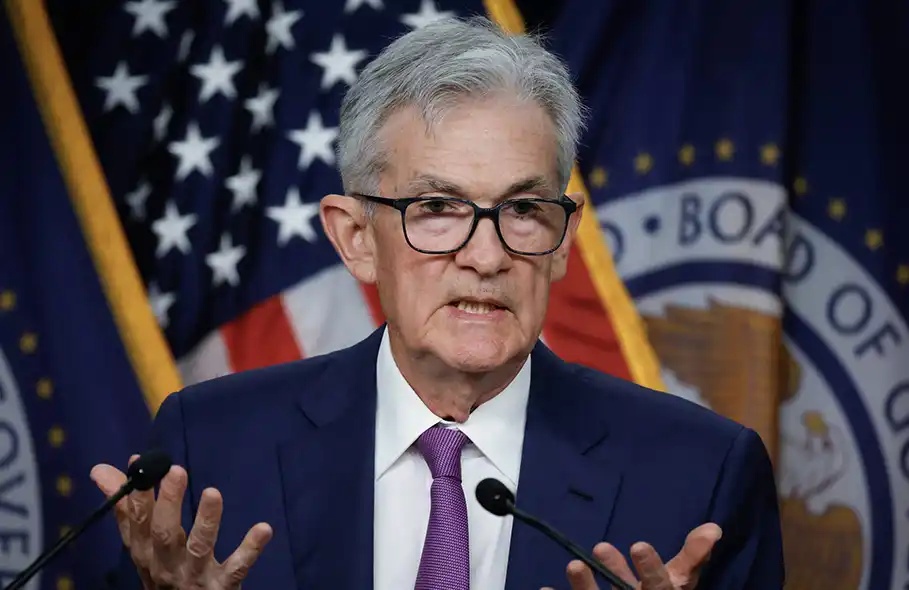DDC and Bitcoin: Outsiders Take Center Stage
The Face of the Mainstream
The "mainstream" has once a stereotype: founders with investment banking pedigrees in tailored suits always measured and restrained in what they say in public; startups from incubators, following a standardized path of fundraising and growth trajectories; capital structures arranged long before an IPO, with each player‘s entry, exit, and market-making role neatly listed on a spreadsheet.
The mainstream had its own narrative—stable, replicable, trustworthy—and a system to match. It decides who the right players were, determined how much they were worth and how far they could go.
But in recent years, that system has begun to fray. Niche cultures have crept in, blurring the once-rigid boundaries.
Graffiti now hangs in art galleries. Punks appear on Fashion Week runways. Hip-hop sweeps the Grammys. Bitcoin, once dismissed as a「criminal tool,」has transformed into a highlight in Fed research reports and a line item in BlackRock‘s asset allocation models.
Niche cultures are seeping into mainstream systems - not by conforming, but by compelling mainstream institutions to recognize their deep roots in public sentiment and cultural influence.
Old authorities no longer hold sway. Old standards are no longer gospel. The once-marginalized now claim their space. Capital markets are learning a new logic: legitimacy doesn't hinge on pedigree, and institutional backing is no longer a surefire sign of success.
These days, breakout stars aren’t the rule-followers but the rule-breakers: GameStop, propelled by memes; AMC, revived by retail communities; Pinduoduo and Temu, which broke through user networks with ruthless product-channel strategies.
Niche culture wins not by overpowering the mainstream, but by getting closer to people. It grows from the ground up—not designed top-down but born of raw need. It’s gritty. It‘s visible. It’s lovable. And it‘s trusted.
Bitcoin‘s Advance: The Conviction of an Outsider
Bitcoin has always been an outsider to the mainstream financial system.
It doesn’t speak the language of Wall Street. It rejects the norms. It operates according to its own distinct principles. In society, outsiders are often unheard. Misunderstood. Labeled as dangerous or uncivilized.
Bitcoin embodies that defiance. Technologically, it challenges centralization. Financially, it challenges sovereign currency. Culturally, it challenges institutional authority. It wasn‘t built by financial elites and people in power—but by fringe communities. It‘s arguably the most disruptive collective belief to emerge from the internet age.
In its first decade, Bitcoin lived in the margins—among geeks, cryptographers, survivalists, anarchists. A parallel system of money ignored and ridiculed by the mainstream.
It burst into public view during the 2017 bull run, drawing attention and regulatory panic. But that was just hype—not true recognition.
Real legitimacy came after 2020. As global stimulus strained faith in traditional finance—stocks soared, the dollar faltered, banks collapsed—Bitcoin re-entered the conversation, not as a speculative play, but as a hedge against inflation. A safeguard for ordinary people. It flowed from geek forums to public markets, becoming a symbol of retail rebellion and anti-establishment resistance.
Back then, Bitcoin was a flag—not a product, but a statement.
Today, Bitcoin is in its third act: accepted by the mainstream, yet still unmistakably an outsider.
It appears in ETFs, asset reports, presidential speeches. But its essence remains untouched—no centralized authority, no figurehead, no owner.
Markets have accepted its price and liquidity. They’ve folded it into passive portfolios. But they haven‘t embraced its ethos. No one asks what it stands for anymore. It’s been accepted—but not assimilated. And it doesn‘t need to be.
Bitcoin’s rise is the most successful insurgency by niche culture into the financial system. Not because it asked for permission—but because it never did.
DDC: A Different Kind of Breakout
Norma Chu never fit the mold of a「typical entrepreneur.」She is described by labels often considered unconventional: female, Asian, content-focused, non-technical.
In 2012, she returned to Hong Kong from the U.S. and noticed something odd: there was no Chinese-language cooking platform for young people. She had started out as an equity analyst at HSBC and could‘ve climbed the traditional finance ladder. Instead, she chose a completely different path – and stepped into a kitchen.
She started filming recipes, taking photos, cutting videos—not to chase traffic or viral trends, but because she loved food.「I love cooking,」she said simply.
So DayDayCook (DDC) didn’t take the traditional CPG route. It wasn‘t a traffic-powered venture, nor a branddesigned backwards from supply chain economics. It was built slowly—through content, conversation, and time.
She just wanted to share her love of food. But one video at a time, a brand emerged. As it evolved into e-commerce, a product system followed. Then she expanded to North America, gained traction, and eventually went public.
「In Hong Kong, it was hard to fundraise or hire. Entering the mainland was a steep learning curve,」she recalls.「I didn’t have a master plan. I just always prioritized the community — understand the users, then figure out channels; create real content before spending on promotion. Strategy serves the story—not the other way around.」
That slow approach didn‘t win over investors early on. It wasn’t sexy. It wasn‘t fast. There was no explosive growth. But over a decade, Norma proved that a brand rooted in content and connection could last.
「We didn’t even calculate GMV at first,」she says.「What mattered was: did people stay because they liked us?」
Sentimental? Maybe. But that sentiment built DDC. It wasn‘t about storytelling—it was about showing up. The content became a relationship. The brand became repeatable.
So when she bought Bitcoin in 2021, it wasn’t a pivot—it was the next step.
By then, Norma had spent 10 years building emotional connections with Gen Z audiences. Her content resonated. It lived where early Bitcoin narratives lived too: in feeling, not finance.
That year, Hong Kong became a hub for crypto talent and capital. Her feed was full of ETF news, Coinbase updates, and the MicroStrategy playbook. A shareholder urged her to explore a Bitcoin treasury. She did. She read Saylor‘s book. She rethought DDC’s finances.
It wasn‘t hype that won her over—it was structure.「If I hadn’t had an equity research background or invested personally in 2021, I might‘ve ignored the idea,」she says.
But she didn‘t ignore it. She proposed it.
Earlier this year, Norma formally introduced a new strategy: add Bitcoin to the company’s balance sheet. Use DDC‘s operating cash to accumulate BTC long-term.
By May, they bought 100 Bitcoin and closed a new funding round. DDC became the world’s first public company led by a female founder to adopt a Bitcoin treasury strategy.

She doesn‘t wave that banner. When asked, she just says:「Sure, it’s cool I‘m the first. But the real question is—was it right for shareholders?」
This wasn‘t a soundbite. It was her framework. She didn’t jump on a trend. She spent a decade building trust, understanding users, and crafting a lasting story—precisely what Bitcoin is built on.
Her understanding didn‘t come from hype, or the dream of fast wealth. It came from trust. From asking: why do people believe in something they can’t see?
That‘s the question she’d been solving for ten years.
DDC‘s users aren’t drive-by traffic—they‘re people who stop to watch a cooking video. Norma doesn’t make viral hits. She builds emotional trust, speaking in the first person, shrinking the distance.「People call us a content-ecommerce brand. But what we really cultivate is emotional credibility,」she says.
And that sense of trust? That’s where her understanding of Bitcoin began.
Even before the pivot, she‘d begun rethinking DDC’s marketing. Ads and discounts used to bring traffic—but retention was weak. Could Web3-style incentives do better?
「Web3 is a new model,」she says.「It lets users share in the value they help create.」
Her audience is Gen Z. They swipe through TikTok recipes, share their recreations on Instagram. They trust brands—but only if the people behind them feel real. Their buying choices are emotional, not just rational.
「We‘re building a Bitcoin rewards system,」she says.「Buy a product or interact on social, and you could earn BTC.」
But this isn’t a gimmicky loyalty program. It‘s a structural shift. She wants Bitcoin to be part of the user experience—ongoing, embedded.
To her, Bitcoin isn’t just digital gold—it‘s a testament to resilience, a marker of trust.
That phrase—「staying power」—is her favorite. It’s how she describes Bitcoin. And it‘s what she wants DDC to become.
「Bitcoin’s been through bans and doubters—and it‘s still here,」she says.「That’s what I want DDC to be too. Resilient. Surviving the cycles. Getting stronger.」
Writing Bitcoin into the DNA
For DDC, a Bitcoin treasury is more than asset allocation. It‘s a shift in company logic.
Norma knows: the hardest part isn’t buying BTC—it‘s committing to keep buying. It’s not just about raising capital—it‘s about turning that capital into momentum.
She brought her old rhythm—the patience of a content brand—into her BTC playbook.
「Buying Bitcoin isn‘t a transaction. It’s a whole system,」she told her team.
Instead of betting big upfront, she built a structured plan: accumulate in batches via financing tools like ATMs; bring in long-term strategic investors; open channels in the crypto community.
She understands what investors are watching: Can the company self-sustain? Can it hold through a bear market? Can the team stay focused and deliver?
Her answers are DDC‘s three「atypical」advantages:
1. Funding base: With experience in both U.S. and Chinese markets, Norma can raise via OTC deals, convertibles, and private agreements—not just public markets.「We‘re in talks with family offices with long-term bitcoin holdings.」
2. Community network: She built an「Influence Collective」with Bitcoin OGs—each one representing a community and a storytelling channel.
3. Asset structure: DDC isn’t burning cash or propped up by hype. Its food business is growing 30–40% per year. In bull markets, it can tell a story. In bear markets, it has cash flow.
That balance comes from rhythm—honed over a decade.
Without that patience, that connection to Gen Z, that timing—DDC might never have embraced Bitcoin. Or known how to write it into its balance sheet.
Two Outsiders at Center Stage
Norma never called herself a「crypto person.」But her so-called fringe labels? They resonate with Bitcoin’s ethos.
She‘s not worried about Bitcoin being dominated by Western narratives. Or about Asian capital missing the stage.
She sees the structure shifting: regulations loosening, capital reallocating, young investors redefining value.
「Stablecoins taught the market. Now crypto’s being understood,」she says.「Investors who didn‘t get BTC last month are now talking about Bitcoin standards and premium structures.」
Norma doesn’t shout about revolution. But she‘s participating in one—quietly, structurally.
Over a decade, she‘s gone from content creator to public company CEO, to the first female founder to lead a Bitcoin treasury.
Once sidelined, she’s now shaping a new story—not despite her「outsider」status, but because of it.
「To exist is to be different. And difference is a strength,」she says. Her cadence is slower than most CEOs’. But in a world of fast capital, that slowness has become her edge.
「I may not be smarter than others. But I‘m incredibly persistent.」
That‘s her and Bitcoin both: born on the fringe, doubted by many, enduring still.
One builds brands and communities. The other is a symbol of decentralization.
They weren’t meant to lead the financial narrative. But now, they‘re both etched into the same balance sheet.
Two outsiders, now standing center stage.
Welcome to join the official BlockBeats community:
Telegram Subscription Group: https://t.me/theblockbeats
Telegram Discussion Group: https://t.me/BlockBeats_App
Official Twitter Account: https://twitter.com/BlockBeatsAsia


 Forum
Forum Finance
Finance
 Specials
Specials
 On-chain Eco
On-chain Eco
 Entry
Entry
 Podcasts
Podcasts
 Activities
Activities
 OPRR
OPRR







